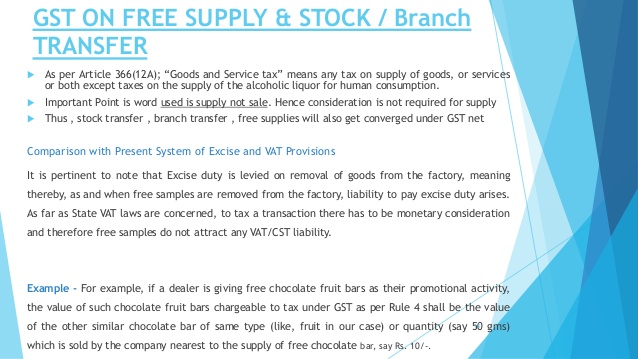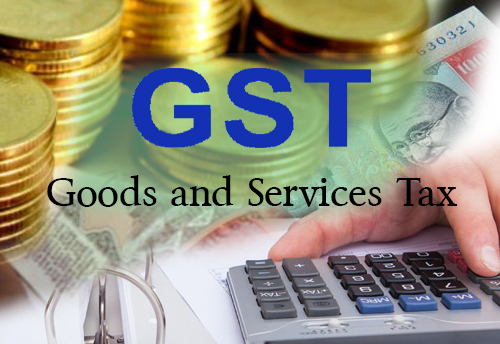Penalty Provisions under GST Act as per Model GST Law

Penalty Provisions under GST (From Model GST Law)
 In GST law penalty provisions are harsher and stricter for tax evader. Taking the intention forward, the penalty provisions in Model GST Law, suggest that the penalty for tax evasions are much harsher.
In GST law penalty provisions are harsher and stricter for tax evader. Taking the intention forward, the penalty provisions in Model GST Law, suggest that the penalty for tax evasions are much harsher.
- In the following cases, Penalty shall be rupees ten thousand or an amount equivalent to tax evaded or tax not deducted, short deducted or deducted but not paid to the credit of appropriate government or input tax credit taken or passed wrongly or the refund is claimed fraudulently, as the case may be, whichever is higher.
GST Act is fairly simple to understand but the Penalty Provisions under the Act are harsh and can lead to stiff financial penalties and some provisions are even non bail able. Ensure due care to comply with the provisions of GST Act
When a taxable person
- Supplies goods and/or services without issue of invoice or issue a false or incorrect invoice
- Issues the invoice but without supply of good and/or services, in violation of provisions of this Act
- Collects any amount of tax but fails to deposit the same to the credit of appropriate government, beyond the period of three months from the date when such payment becomes due
- Collects any amount in contravention of provisions of this Act but fails to deposit the same to the credit of appropriate government, beyond the period of three months from the date when such payment becomes due
- Fails to deduct the tax in terms of sub section (1) of section 37 or sub section (1) of section 43C or collects and amount which is less than amount required to be deducted
- Taken/ Utilised input tax credit fraudulently
- Obtained refund of CGST / SGST fraudulently
- Falsifies or substitute the financial records with an intention to evade tax
- Fails to obtain registration, when he is liable to get registered
- Furnishes false information at the time of registration or subsequently
- Obstructs or prevent any officer from discharge of his duty under this Act
- Transport any goods without any cover document as specified
- Supresses his turnover leading to tax evasion
- Fails to keep or maintain or retain books as per provisions of this Act
- Fails to furnish or furnishes false document to the officer of CGST/SGST during the proceeding under this Act
- Supplies, stores or transport such goods which he has reasons to believe are liable to confiscation
- Issues invoices or document by using identification of another person
- Destroys or tampers with the evidence
- Disposes off or tampers with any good that have been seized, detained or attached.
Any person who repeatedly i.e. If there were any three short payments in three returns during any six consecutive tax period, shall be liable to penalty of rupees ten thousand or ten percent of short paid tax, whichever is higher.
- Any person who aids or abets any of the above offence shall be liable to a penalty which may extend to rupees twenty-five thousand.
- Residuary clause for Penalties
If a person contravenes any provisions or rules under this Act, for which no penalty is separately provided, shall be liable to a penalty which may extend to rupees twenty-five thousand rupees.
- Penalty table
| Monetary Limit | Punishment | Nature of offence |
| Amount of tax evaded exceeds two hundred and fifty lakhs rupees (in case of above Specified offences) | Imprisonment up to 5 Years but not less than 6 months and fine
|
Cognizable and non- bailable |
| Amount of tax evaded exceeds fifty lakhs but below two hundred and fifty lakhs (in case of above Specified offences) | Imprisonment up to 3 Years but not less than 6 monthsand fine
|
Non-Cognizable and bailable |
| Amount of tax evaded exceeds two hundred and fifty lakhs rupees (in offences other than specified above) | Imprisonment up to 1 Year but not less than 6 months and fine
|
Non-Cognizable and bailable |
| If a person is convicted of an offence under the same section again, then in subsequent cases | Imprisonment up to 5 Years but not less than 6 months and fine
|
Non-Cognizable and bailable |
Sources – http://finmin.nic.in/reports/modelgstlaw_draft.pdf


 Sales Tax For E-Commerce: 3 Things Small Businesses Should Know
Sales Tax For E-Commerce: 3 Things Small Businesses Should Know  What Is The GST Liability on Free Supply of Goods and Services?
What Is The GST Liability on Free Supply of Goods and Services?  Some FAQs about GST- Understanding Scope and Provisions of GST
Some FAQs about GST- Understanding Scope and Provisions of GST  Understanding the Reverse Charge mechanism under GST and IGST?
Understanding the Reverse Charge mechanism under GST and IGST?  Pros and Cons of GST- Is Ushering in of GST worth Celebrating as media wants us to believe?
Pros and Cons of GST- Is Ushering in of GST worth Celebrating as media wants us to believe?  Arrests and Detention Provisions under GST in Detail- Are these justified
Arrests and Detention Provisions under GST in Detail- Are these justified  ITAT Amritsar: No Section 269SS Violation for One-Time Cash Payment Before Sub-Registrar
ITAT Amritsar: No Section 269SS Violation for One-Time Cash Payment Before Sub-Registrar  Tax Officials Unleash Digital Dragnet: How New Raid Powers Redefine Privacy, Property Rights in India and likely to Fuel Corruption
Tax Officials Unleash Digital Dragnet: How New Raid Powers Redefine Privacy, Property Rights in India and likely to Fuel Corruption  Income Tax Department Rewards for Reporting Tax Evasion: A Comprehensive Guide
Income Tax Department Rewards for Reporting Tax Evasion: A Comprehensive Guide  Forfeiture of Gratuity by Employer- What are the Remedies for an employee- Can employer be challenged?
Forfeiture of Gratuity by Employer- What are the Remedies for an employee- Can employer be challenged?